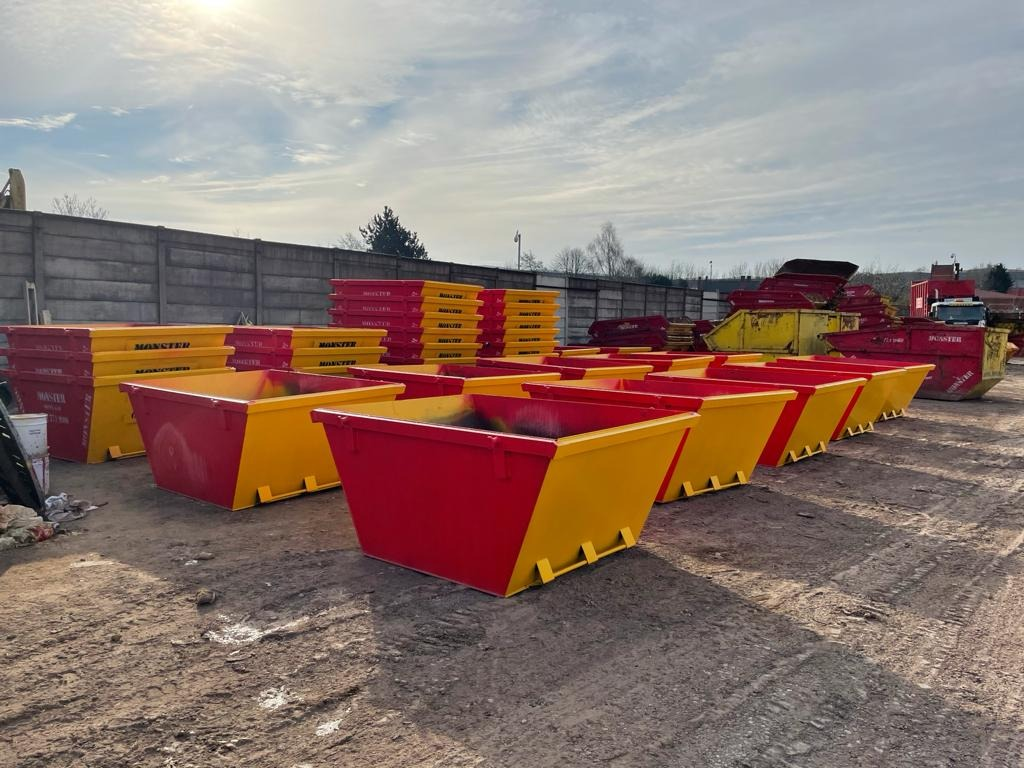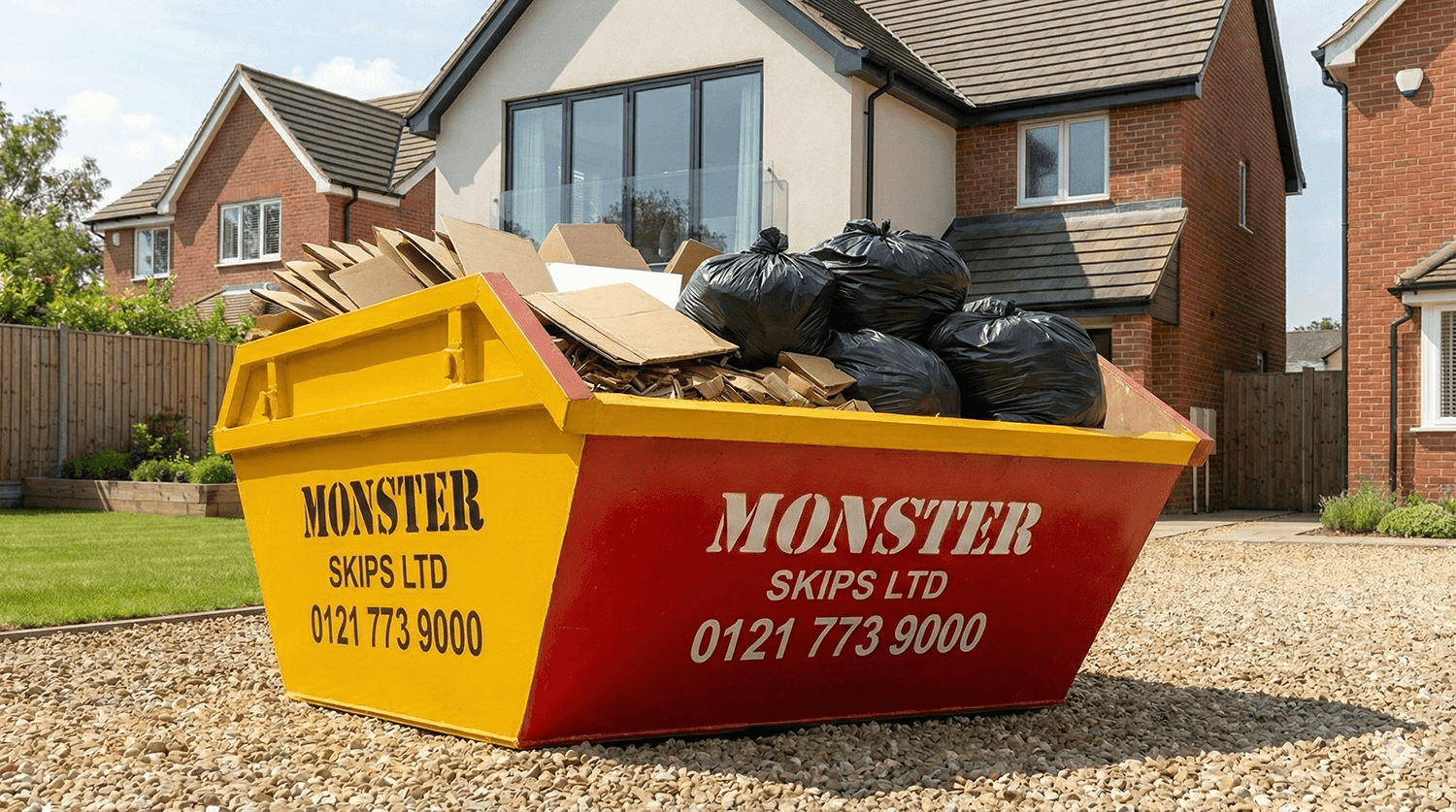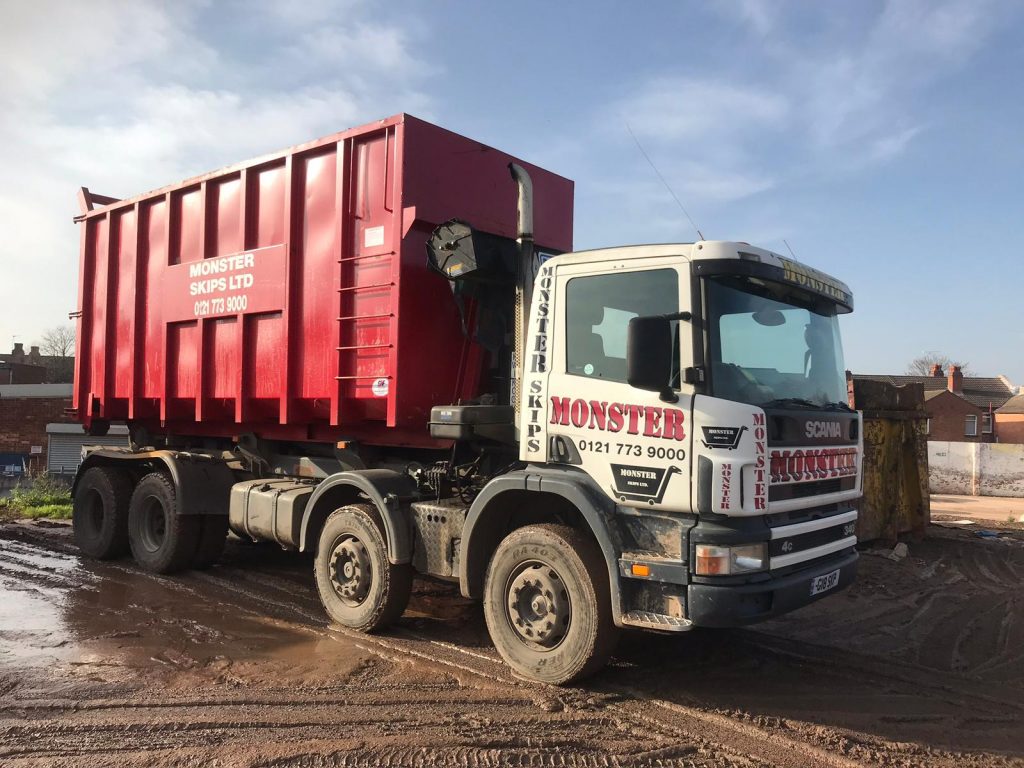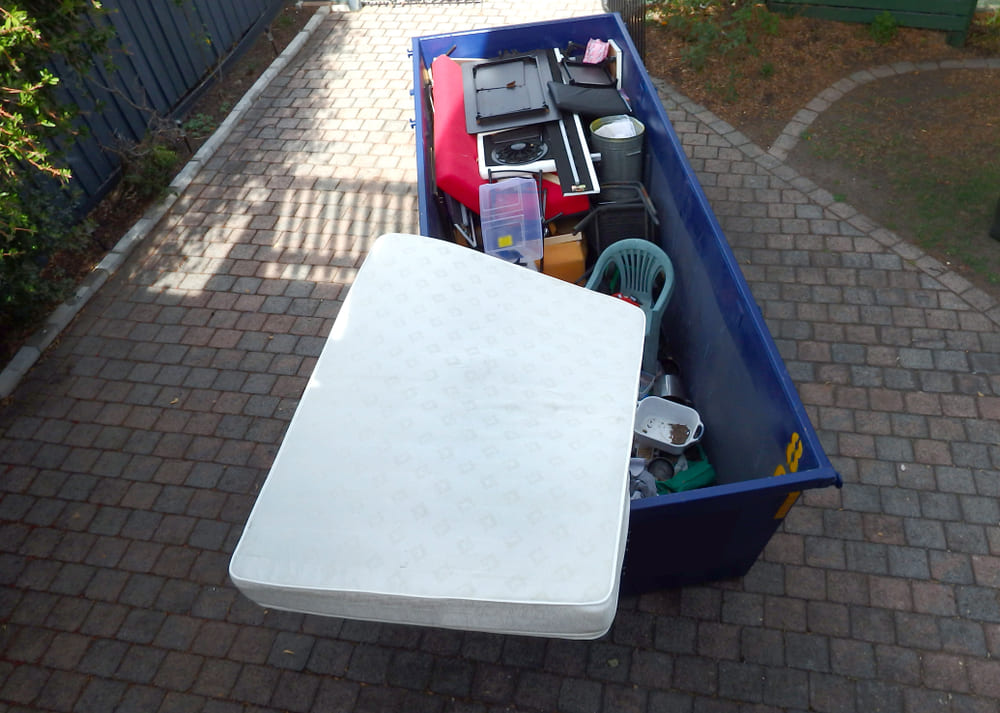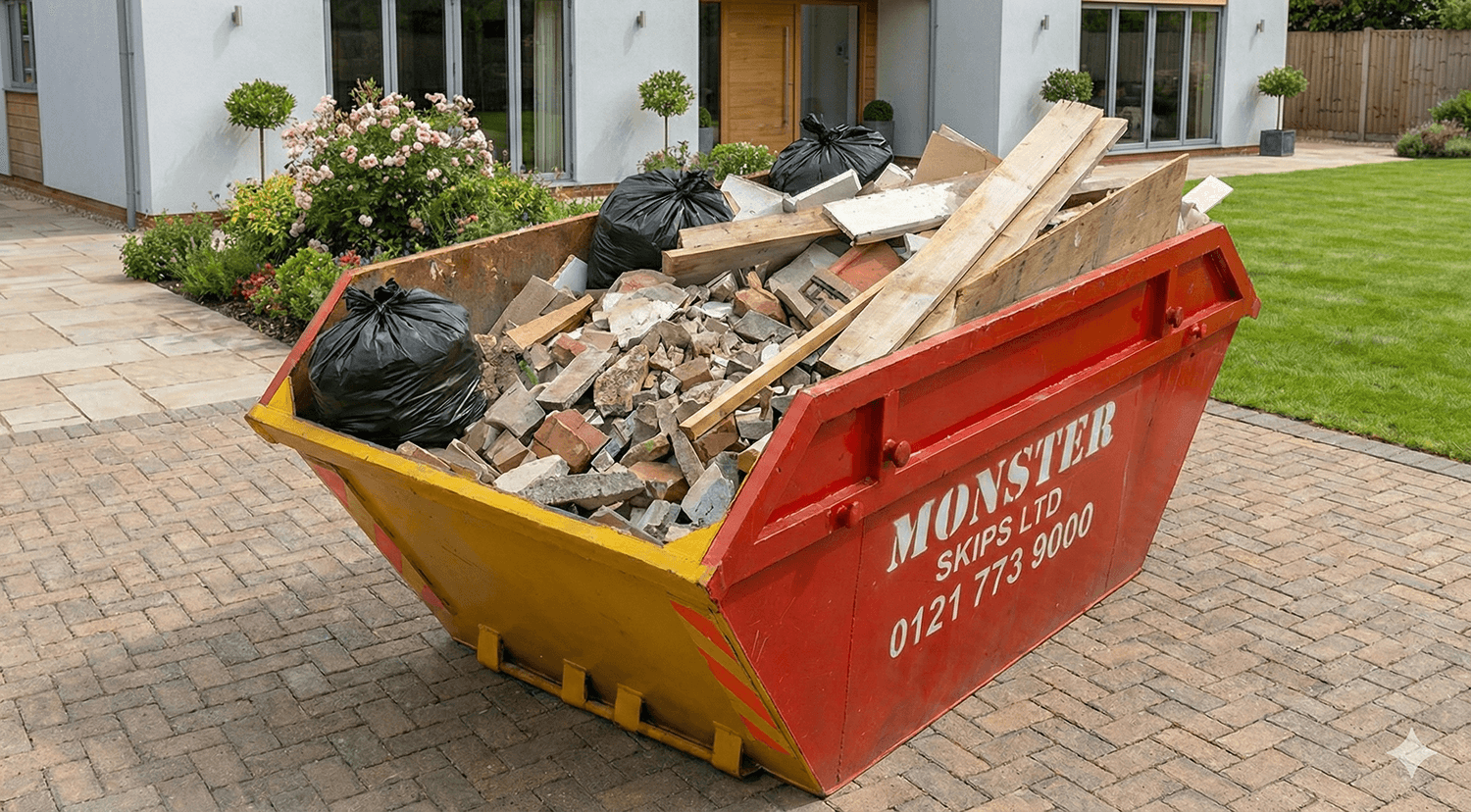

A Homeowner’s Guide to Skip Hire in 2025
Clearing out a house, renovating a bathroom, or starting a garden project often leaves homeowners facing the same challenge: how to deal with all the waste. Multiple trips to the tip can be tiring, messy, and expensive once you factor in fuel and time. Hiring a van isn’t always practical either, especially for bulky or heavy items.
This is where skip hire makes life easier. Having a skip delivered directly to your property allows you to manage waste efficiently, stay organised during your project, and ensure everything is disposed of responsibly. This guide covers the essentials every homeowner should know before booking.
Why Skip Hire is Useful for Homeowners
Hiring a skip is not just for builders and contractors working on large construction sites. For many homeowners, domestic skip hire is a practical solution that makes everyday projects far easier to manage. Whether you are refurbishing a kitchen, clearing out an overfilled loft, replacing old furniture, or redesigning the garden, having a skip on your property gives you one convenient place to dispose of everything.
The real advantage is the time and effort saved. Instead of loading your car with bags of rubbish and making repeated trips to the local recycling centre, all your waste can be collected in one go. This means less stress, fewer messes in your vehicle, and more time to focus on finishing your project. A skip also helps keep your home and outdoor spaces tidy while work is underway, preventing piles of debris from building up around the property.
Choosing the Right Skip Size
One of the first questions homeowners ask is, what size skip do I need? Choosing the right one will save money and hassle.
- Mini skip (2–3 yards): Ideal for garden trimmings, small DIY jobs or clearing a single room.
- Midi skip (4–5 yards): Suited to bathroom refits or slightly larger projects.
- Builders skip (6–8 yards): The most popular choice for home renovations, rubble, tiles and soil.
- Large skip (10–12 yards): Best for full house clearances or bulky waste.
Ordering too small can mean paying for a second skip, while going too big means you pay for unused space.
Costs and What Affects Them
The price of skip hire can vary, and several factors influence what you pay:
- Larger skips cost more than smaller ones, so choosing the right size is important.
- The type of waste plays a role, with heavy or hazardous materials often incurring extra charges.
- The length of hire affects price, as most companies include a standard period and charge more if you need the skip for longer.
- Placement of the skip matters, since those positioned on public roads usually require a paid council permit.
- It is always worth checking if delivery, collection and VAT are included in the quoted price to avoid surprises.
Skip Permits
One detail that often catches homeowners by surprise is the need for a skip permit. If your skip can be delivered onto private land, such as your driveway or front garden, you are free to use it without any extra paperwork. The rules change, however, once the skip is placed on public ground. A skip sitting on the road, a pavement, or any other council-managed space must be covered by a permit issued by the local council.
The responsibility for obtaining the permit does not fall on you directly. Instead, only licensed skip hire companies are authorised to make the application. There is usually a fee involved, which varies depending on the locations and the length of time the skip will be in place. Because approval is not instant, it makes sense to discuss this with your provider in advance so that the permit is secured before delivery. This way, your project can go ahead smoothly without unexpected delays or fines.
Key points to remember about skip permits:
- No permit is required if the skip is on your own property.
- A permit is compulsory if the skip sits on a public road, pavement, or council-owned land.
- Only licensed skip hire companies can apply for permits.
- Fees apply and vary depending on location and duration.
- Always arrange the permit before delivery to avoid disruption.
What Can and Cannot Go in a Skip
Knowing what you can put in a skip helps you avoid problems later. Common household waste such as wood, plastics, soil, garden waste and furniture are all fine. Items that cannot go in a skip include asbestos, tyres, electrical appliances, fridges and freezers, gas cylinders and paint tins. If you have specialist waste, ask your provider how it should be disposed of. Putting prohibited items in a skip can lead to extra charges or refusal of collection.
Environmental Considerations
Homeowners are becoming more aware of the environmental impact of waste, and many want reassurance that their rubbish will not simply be dumped into a landfill. With skip hire, choosing the right company makes a real difference. Reputable and licensed providers follow strict waste management practices. Once your skip is collected, the contents are taken to a dedicated facility where materials are sorted and processed rather than discarded altogether.
Common items such as wood, metal, soil, concrete and green waste are carefully separated so they can be recycled and reused in new projects. This process reduces the amount of rubbish that ends up in landfill and helps to lower carbon emissions. In some cases, waste can even be converted into energy, giving it a second life instead of being wasted.
Common Mistakes to Avoid
- Ordering the wrong skip size and paying more than necessary.
- Forgetting to arrange a permit when the skip is placed on the road.
- Leaving the booking to the last minute during busy months and facing limited availability.
- Overloading the skip or including restricted items.
- Not checking that the company is licensed to carry waste.
Avoiding these mistakes will make your experience smooth and cost-effective.
Choosing the Right Skip Hire Company
When comparing providers for skip hire, look for companies that are licensed, transparent with pricing, and willing to handle permits on your behalf. Reading reviews from other customers will give you a sense of reliability. A good company will deliver and collect promptly, recycle where possible, and provide clear guidance on what can and cannot be placed in the skip.
Final Thoughts
Hiring a skip makes home improvement and clear-out projects easier and more efficient. By choosing the correct size, understanding costs, and working with a licensed local provider, you can manage your waste without stress.
For reliable and affordable skip hire, Monster Skips Ltd is here to help. We offer domestic and commercial skips across the West Midlands, arrange permits when needed, and make sure your waste is handled in a responsible way.
Call 0121 773 9000 today to book your skip or learn more about our services.
Frequently Asked Questions
What size skip should I hire for my home project?
The right size depends on the type and amount of waste. Small garden jobs may only need a mini skip, while a kitchen refit often suits a midi skip. Larger house renovations or clearances may require a builder’s skip or bigger. If unsure, ask your skip provider for guidance.
Do I need a permit for a skip?
If the skip is placed on private land like a driveway or garden, no permit is needed. However, if it is positioned on a public road or pavement, a skip permit is required from the local council. Only licensed skip hire companies can apply for one on your behalf.
How long can I keep a skip?
Most companies include a standard hire period of one to two weeks. If you need it for longer, let your provider know in advance. Extra charges may apply for extended hire.
What cannot go in a skip?
Items such as asbestos, electrical appliances, tyres, fridges, freezers, gas bottles, and paint tins are not allowed. Your provider will explain how to safely dispose of these materials through specialist services.
How much does skip hire cost?
Prices vary depending on the size of the skip, the type of waste, and whether a permit is required. As a guide, mini skips start from just under one hundred pounds, while larger domestic skips can cost over two hundred. Always check if delivery, collection, and VAT are included.
What happens to my waste once the skip is collected?
Licensed providers take skips to waste management facilities where materials are sorted. Wood, metal, soil, and rubble are separated for recycling, helping reduce the amount sent to landfill.

